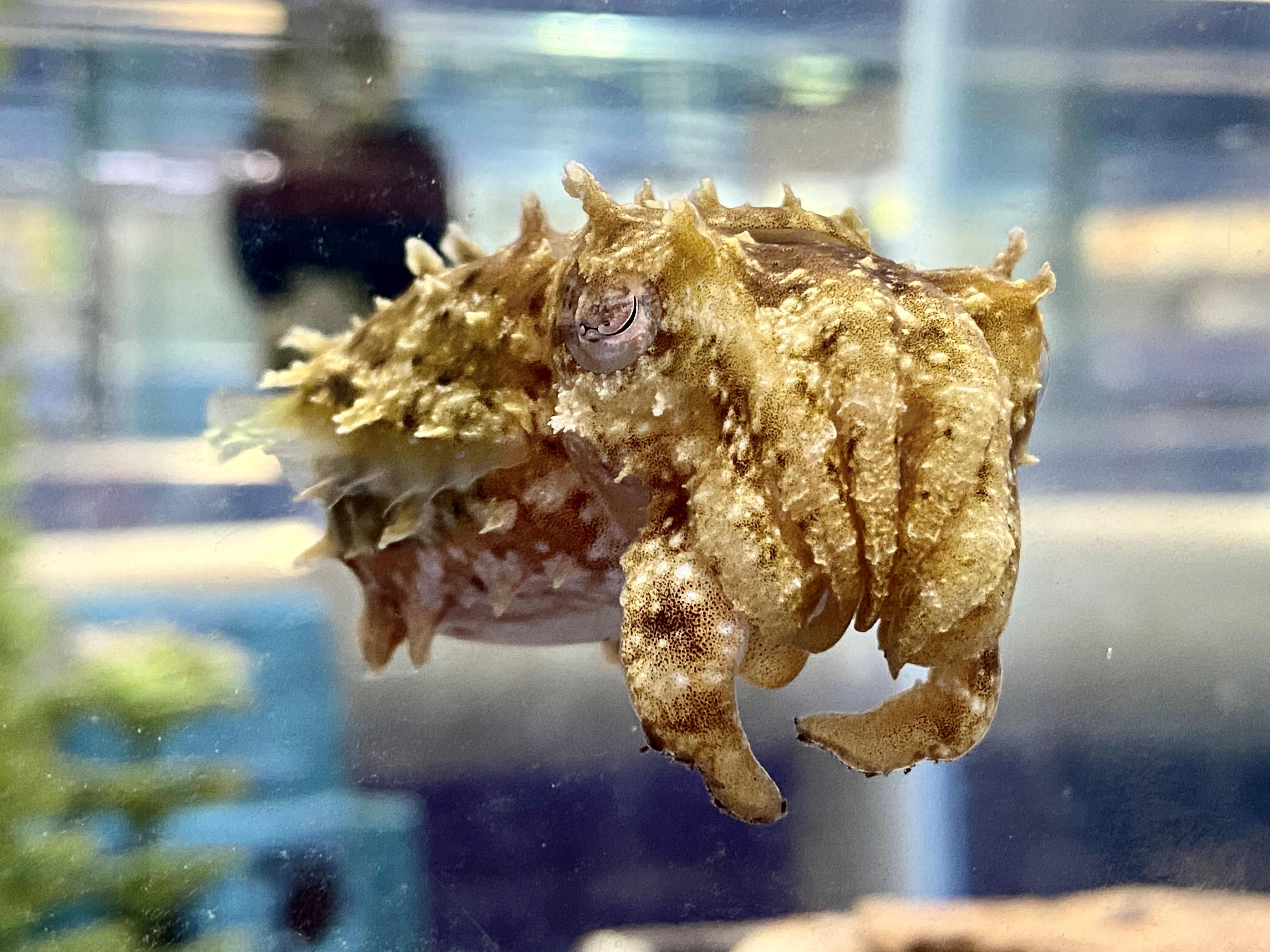Abstract:
Cuttlefish are coleoid cephalopods that dynamically change the color, pattern and texture of their skin to camouflage with their surroundings. Camouflage is achieved by expanding and contracting pigment-filled saccules in the skin called chromatophores, through the action of motor neurons that project from the brain. Thus, the patterning of the skin is a physical manifestation of neural activity in the brain. We are using this system to understand how the physical properties of the visual world are represented by patterns of neural activity in the brain, and how this representation is transformed into an approximation of the physical world on the skin. We have performed a series of experiments to develop the dwarf cuttlefish, Sepia bandensis, as a model to investigate the neural basis of camouflage. We have described the stages of embryonic development, sequenced the genome and neural transcriptome, completed a 3D brain atlas, and developed a visually-evoked camouflage behavioral paradigm. Furthermore, we are generating transgenic cuttlefish that express genetically-encoded calcium indicators and light-activated channels, permitting the live imaging and manipulation of neural activity. These technologies should permit us to simultaneously record neural activity and measure behavior to uncover how visual information is deconstructed in the brain, and then reconstructed into an image of the physical world on the skin.

Biography:
Tessa Montague is a postdoctoral fellow and HHMI Hanna Gray Fellow in the Axel lab at Columbia University. Tessa completed a B.A. in Natural Sciences and an M.Phil. in genetics at the University of Cambridge, and a Ph.D. in biochemistry at Harvard University, where she worked in the laboratory of Alex Schier. As a graduate student, Tessa dissected molecular pathways underlying zebrafish embryogenesis and co-created the CRISPR web tool, CHOPCHOP. In the final year of her Ph.D., Tessa attended the Embryology Course at the Marine Biological Laboratory in Woods Hole, where she became fascinated by cephalopods (cuttlefish, octopus and squid). This inspired her to return to Woods Hole as a Grass Fellow, and to launch her postdoctoral research program on cuttlefish camouflage. Tessa is passionate about bringing science education and research beyond the lab. Among other projects, she recently co-created and taught an undergraduate neuroscience course in a women's prison.
